doctor
Latest
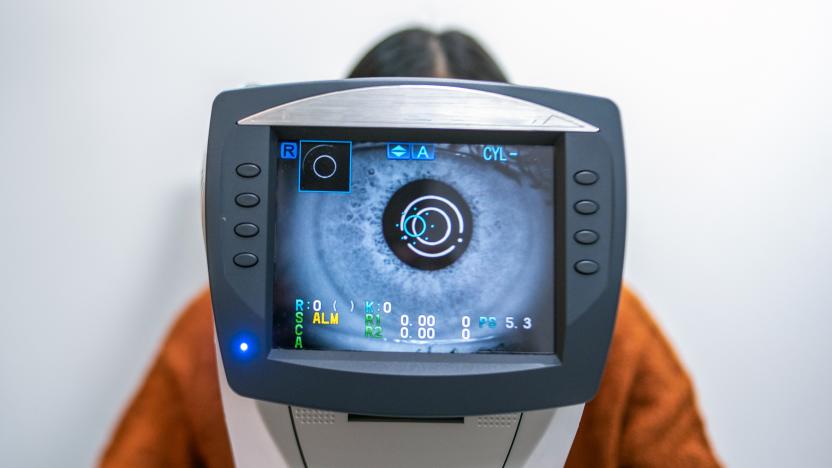
GPT-4 performed close to the level of expert doctors in eye assessments
Researchers found that GPT-4 outperformed unspecialized junior doctors and trainee ophthalmologists in eye assessments.
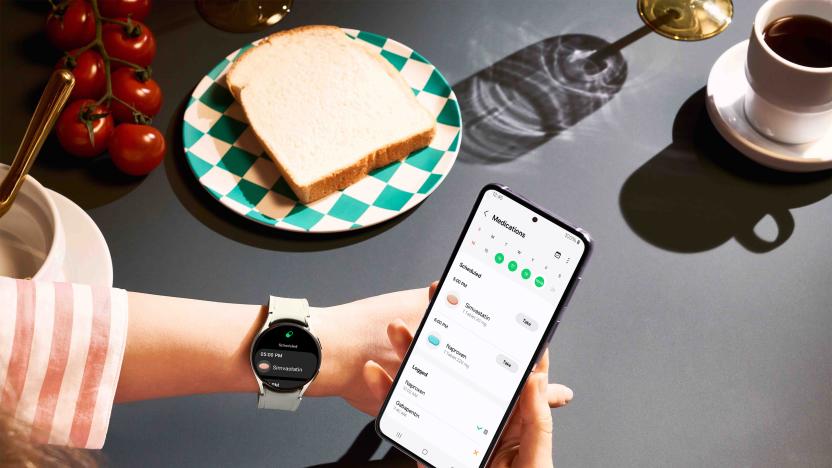
Samsung adds medication tracking to its Health app
Samsung has added a new medication tracking feature to its Health app and it's expected to launch in the US when the app updates later this week.
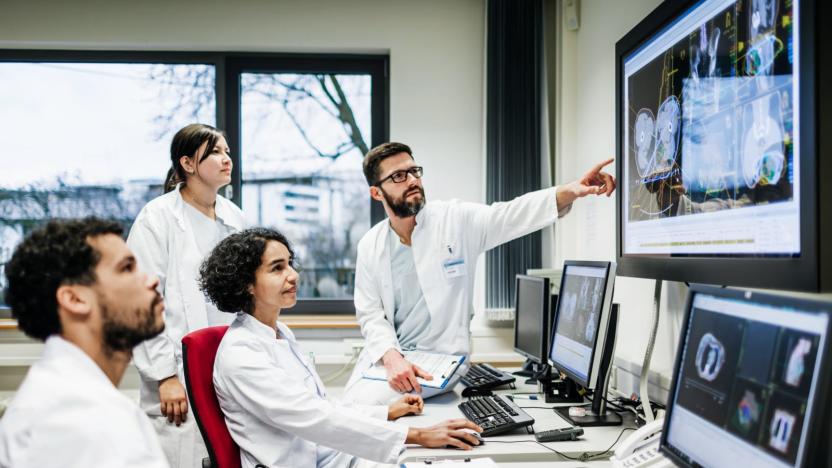
Google wants to give doctors web-like searches for medical records
Google made much ado of its recently created Health unit, but it didn't offer much insight into what that division would actually... well, do. Now, however, it's considerably clearer. Google Health lead David Feinberg and CNBC sources have outlined some of the ideas his team has, and they revolve around (surprise!) search for both you and your doctor. Feinberg envisions a search bar that would help doctors search medical records like they do the web. A doctor could search for "87" to find an 87-year-old patient instead of using the patient's name, as an example.

Lyft offers non-emergency rides to Medicaid patients in Arizona
Lyft will offer rides to more people in need of them for health reasons, as it's signed up to become a Medicaid provider in Arizona. Non-emergency medical transportation rides will be covered for eligible patients. Lyft is also working on expanding the program to Medicare services in other states.

Physicists keep striking out in the search for dark matter
Space may be the final frontier, but we've barely begun to explore its underlying mechanics. For as much as humanity has discovered since we first looked to the heavens, we've only seen about five percent of the total matter in the universe. The other 95 percent -- the so-called "dark matter" -- well, we can't even figure out how to see yet. But that doesn't mean researchers from around the world aren't devising ways to do so.

Google voice recognition could transcribe doctor visits
Doctors work long hours, and a disturbingly large part of that is documenting patient visits -- one study indicates that they spend 6 hours of an 11-hour day making sure their records are up to snuff. But how do you streamline that work without hiring an army of note takers? Google Brain and Stanford think voice recognition is the answer. They recently partnered on a study that used automatic speech recognition (similar to what you'd find in Google Assistant or Google Translate) to transcribe both doctors and patients during a session.
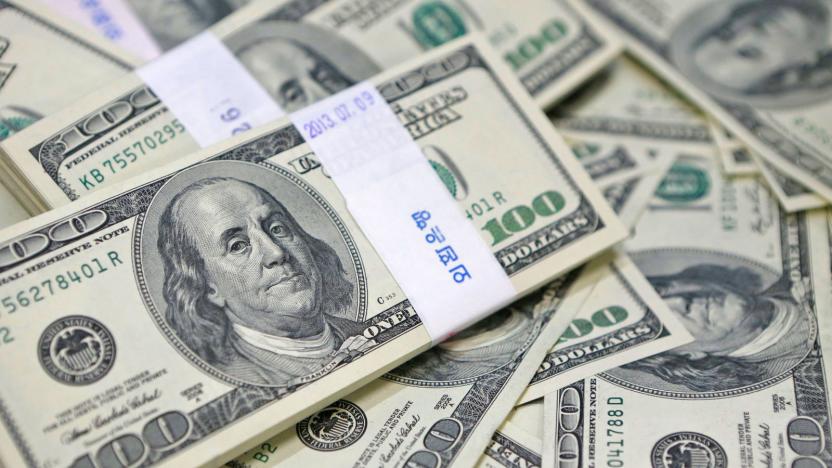
America’s cash-free future is just around the corner
Shake Shack's next burger joint at Astor Place in NYC doesn't want your money -- at least not the physical variety. In an effort to reduce the "friction time" between paying for your meal and eating it, the company plans to replace human cashiers for automated kiosks which won't accept actual bills and coins, only cards. This move is part of a global trend away from cash-based economies and towards Star Wars-style credits. But could such a monetary revolution actually benefit all Americans? Don't bet on it.
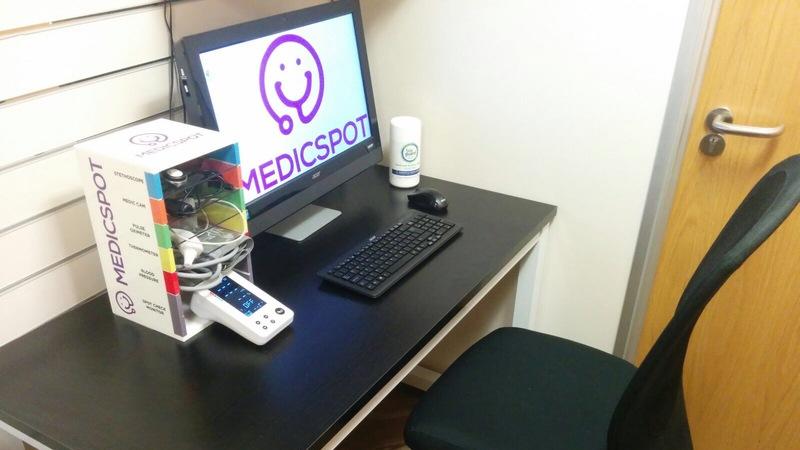
Visit a kiosk in the UK to diagnose your cold
We have app doctors that can help diagnose you from your phone and in the future, we very well might have AI physicians, but the UK is now offering another option -- medical kiosks. A company called MedicSpot has set up tiny clinics in pharmacies across the UK that virtually connect you to a real physician and are stocked with all of the necessary equipment for an examination. The mini clinic has a blood pressure cuff, stethoscope, pulse oximeter, thermometer and a camera that can give the doctor a look into your throat and ears. The doctor can even write you a prescription if need be.

Listening to starlight: Our ongoing search for alien intelligence
Six hours a day, seven days a week, for four straight months. That's how long radio astronomer Frank D. Drake pointed the 26-meter telescope at the National Radio Astronomy Observatory (NRAO) research facility in Green Bank, West Virginia, toward the heavens, looking for signs of intelligent life beyond Earth. He dubbed his efforts Project Ozma, in honor of the Queen of Oz from L. Frank Baum's famed children's book series.

Stanford has developed a roadside breathalyzer for weed
Blood, breath and urine. These are the holy trinity of determining alcohol intoxication but are virtually useless when measuring the amount of THC in your system thanks the molecule's ability to remain present in bodily fluids for up to a month after consumption. However, a technological breakthrough from Stanford University could soon enable law enforcement to accurately determine how blunted you are as soon as they pull you over.

ICYMI: RoboDoc beats humans, touchpad skin and more
#fivemin-widget-blogsmith-image-682998{display:none;} .cke_show_borders #fivemin-widget-blogsmith-image-682998, #postcontentcontainer #fivemin-widget-blogsmith-image-682998{width:570px;display:block;} try{document.getElementById("fivemin-widget-blogsmith-image-682998").style.display="none";}catch(e){} Today on In Case You Missed It: The Smart Tissue Autonomous Robot performed surgery on its own (with a human standing by) and turns out, makes such fine, consistent stitches that it actually beats those done by real counterparts. Carnegie Mellon created a wristwatch display and ring system that makes the skin of your forearm a touch pad to interact with the screen. And McDonald's made something called the McTrax placemat in the Netherland's and music folk everywhere want one, asap. We also rounded up the week's big headlines in TL;DR and hope your weekend conversations touch on whether the UAE should build an artificial mountain to get more rain. As always, please share any great tech or science videos you find by using the #ICYMI hashtag on Twitter for @mskerryd.

Chris Chibnall is in charge of 'Doctor Who,' and it's British TV's fault
The news that Chris Chibnall was going to replace Steven Moffat as the man in charge of Doctor Who wasn't one I relished hearing. After all, Chibnall lacks the pedigree of both his predecessors, and the episodes that he has written for the show have been underwhelming. His appointment makes plenty of sense when you look at it from the BBC's perspective, but it also exposes a bitter truth about the state of the UK's TV industry.

Lyft takes you to the doctor even if you don't have a phone
People who don't have a cellphone need rides too, and Lyft is looking to lending a hand. The transportation service teamed up with National Medtrans Network in New York City to take folks to the doctor who can't hail a ride from the app. Instead, Lyft has a web-based Concierge tool that allows service providers to book rides for them. After the rider's name, pick-up and drop-off addresses are entered, a Lyft driver will be dispatched when the time comes. This NYC partnership is a pilot for the Concierge feature, so there's no word on when, or if, it'll make its debut in other cities. [Image credit: Lyft]

Remember Me studio building vampiric WWI RPG
Remember Me and Life is Strange developer Dontnod is working on Vampyr, an action-RPG set just after World War I and starring a doctor who's also a vampire, The Sixth Axis reports. As the doctor, players must grapple with moral quandaries – to heal or to feed on your patients? – and the game's tagline is "Take blood. Save a life," the site reports. Focus Home Interactive is publishing. Dontnod announced the game during a Focus Home event today. There's no release date or confirmed platforms for Vampyr just yet. Dontnod is also working on the episodic, time-bending, emotional journey of Life is Strange, due to debut on January 30 for Xbox 360, PS3, Xbox One, PS4 and PC. We have a preview of that one here.

The NHS will let you access your health records from a phone
The NHS is one of Britain's greatest achievements and the envy of countless countries around the world, but sometimes it's found it hard to ditch the paperwork and embrace technology. In its ongoing bid to improve patient care (and save a few pennies) the NHS today outlined a number of new digital improvements that include making use of apps and opening up access to millions of healthcare records. Parents, for example, will be offered a new digital "red book" that lets them manage their child's early health updates from a smartphone or tablet. The NHS will also start giving smartphone apps a new golden seal of approval so patients and carers know they're reliable. Who knows, in the future, doctors could use your Apple Health or Google Fit data to cure all of your ailments.

Philips' wearable sensor gives COPD patients constant health tracking
Philips is no stranger to the healthcare industry, and with a new sensor, it's looking to further dive into medical wearables for real-world use. The company developed a gadget for COPD (chronic obstructive pulmonary disease) sufferers that's worn inside a disposable adhesive patch, continuously gathering diagnostic stats like heart rate, respiratory function and physical activity (or inactivity). All of the data is collected on the sensor, transferred to the patient's mobile device and uploaded to a cloud-based healthcare repository. The tech, which was co-developed with Radboud University Medical Center in the Netherlands, allows doctors to monitor patients from afar and assess an episode before things get too severe. According to Philips, this is just the first in a line of low-cost sensors in the works to monitor chronic medical conditions in real time.

Google trial lets you chat with doctors when you search for symptoms
Searching the web for symptoms of illness can be dangerous -- you could identify a real condition, but you also risk scaring yourself for no reason through a misdiagnosis. Google might have a solution that puts your mind at ease, though. The company has confirmed to Engadget that it's testing a Helpouts-style feature which offers video chats with doctors when you search for symptoms. While there aren't many details of how this works in practice, the search card mentions that Google is covering the costs of any chats during the trial phase. You'll likely have to pay for virtual appointments if and when the service is ever ready for prime time, then. That's not ideal, but it could be much cheaper than seeing a physician in person. [Top image credit: AP Photo/Craig Moore]

Boston Children's Hospital preps surgeons with custom 3D-printed models
Undoubtedly, 3D printing has taken root in a variety of disciplines, and medicine is no stranger to leveraging its tool kit. At Boston Children's Hospital, surgeons are using printed models to prep for the operating room. "With 3D printing, we're taking a step that allows experienced doctors to simulate the specific anatomy of their patients and allows the best of the best to become even better," says Peter Weinstock, MD, PhD. Dr. Weinstock is working on an in-house service that's capable of constructing the models in short order. Using scans from the hospital's radiology department and a 3D printer capable of super high-resolution output (16 microns, to be exact), the models allow doctors to examine details of a baby's skull or brain. What's more, the machine can use multiple materials to sculpt the final result, simulating the unique facets of bone, skin and blood vessels individually. For surgeons-in-training, the custom-made prints can illustrate the details of a medical condition rather than an average look.

Stanford medical students learn to operate with Google Glass
Like their fellow future doctors down the road in Irvine, medical students at Stanford University will learn surgical methods with a hand from Google Glass. Those studying cardiothoracic techniques are set use Mountain View's high-tech spectacles to stream their views in real-time to instructors with the help of CrowdOptic -- a company that's part of the Glass at Work initiative. The aforementioned California-based schools aren't the first use the gadget in surgery, as it has already streamed full procedures. Privacy concerns immediately arise when discussing the use of a hackable device in medical settings, but CrowdOptic knows how it will secure the data and comply with the Health Insurance Portability and Accountability Act (HIPAA). It also won't have access to the captured video as they're set to remain Stanford's property. The streaming outfit has also locked down its own spectrum, so it doesn't have to keep tabs on steady WiFi to stay connected. With more universities and physicians opting for Glass on the regular, it seems medicine is one place the wearable fits in nicely. [Photo credit: Angel Navarrete/Bloomberg via Getty Images]

Put your back out again? Doctors now available to order through Zesty
Zesty.co.uk launched this time last year as an online portal for booking last-minute dentist appointments at clinics across London. While it's no doubt been useful for anyone that needs an emergency (and likely extortionately priced) filling, the site has now expanded to help you access other healthcare services at short notice. Whether you're in need of a chiropractor, osteopath, physiotherapist or sexual health professional, you can use Zesty to check for open appointments in your local area. You can even book in to see a GP, but only at private clinics -- for a short-notice slot at your own NHS surgery, we're afraid you'll still have to be on the phone by 7am. In its quest to "make healthcare appointments as easy as ordering a pizza," Zesty plans to go almost UK-wide later this year and release a native app to compliment its mobile-optimised site. Before you get the wrong impression from Zesty's strange tagline and accompanying imagery: your pizza delivery guy is not qualified to give medical advice.











